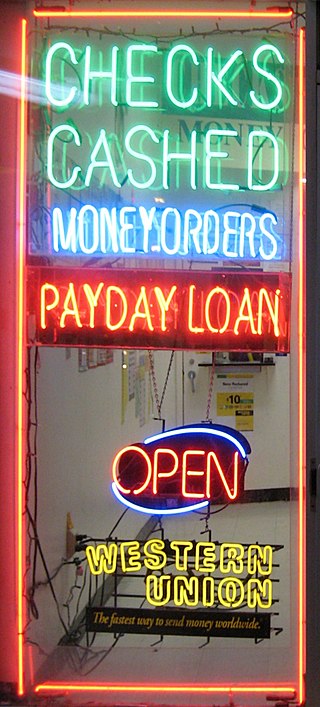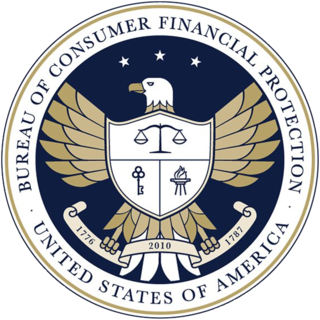Related Research Articles

Identity theft, identity piracy or identity infringement occurs when someone uses another's personal identifying information, like their name, identifying number, or credit card number, without their permission, to commit fraud or other crimes. The term identity theft was coined in 1964. Since that time, the definition of identity theft has been legally defined throughout both the U.K. and the U.S. as the theft of personally identifiable information. Identity theft deliberately uses someone else's identity as a method to gain financial advantages or obtain credit and other benefits. The person whose identity has been stolen may suffer adverse consequences, especially if they are falsely held responsible for the perpetrator's actions. Personally identifiable information generally includes a person's name, date of birth, social security number, driver's license number, bank account or credit card numbers, PINs, electronic signatures, fingerprints, passwords, or any other information that can be used to access a person's financial resources.
Consumer Reports (CR), formerly Consumers Union (CU), is an American nonprofit consumer organization dedicated to independent product testing, investigative journalism, consumer-oriented research, public education, and consumer advocacy.

Public Interest Research Groups (PIRGs) are a federation of U.S. and Canadian non-profit organizations that employ grassroots organizing and direct advocacy on issues such as consumer protection, public health and transportation. The PIRGs are closely affiliated with the Fund for the Public Interest, which conducts fundraising and canvassing on their behalf.

A payday loan is a short-term unsecured loan, often characterized by high interest rates. These loans are typically designed to cover immediate financial needs and are intended to be repaid on the borrower's next payday.

The Fair Credit Reporting Act (FCRA), 15 U.S.C. § 1681 et seq., is federal legislation enacted to promote the accuracy, fairness, and privacy of consumer information contained in the files of consumer reporting agencies. It was intended to shield consumers from the willful and/or negligent inclusion of erroneous data in their credit reports. To that end, the FCRA regulates the collection, dissemination, and use of consumer information, including consumer credit information. Together with the Fair Debt Collection Practices Act (FDCPA), the FCRA forms the foundation of consumer rights law in the United States. It was originally passed in 1970, and is enforced by the U.S. Federal Trade Commission, the Consumer Financial Protection Bureau, and private litigants.

Capital One Financial Corporation is an American bank holding company founded on July 21, 1994 and specializing in credit cards, auto loans, banking, and savings accounts, headquartered in Tysons, Virginia with operations primarily in the United States. It is the 12th largest bank in the United States by total assets as of December 31, 2022, the third largest issuer of Visa and Mastercard credit cards, and one of the largest car finance companies in the United States.
A credit history is a record of a borrower's responsible repayment of debts. A credit report is a record of the borrower's credit history from a number of sources, including banks, credit card companies, collection agencies, and governments. A borrower's credit score is the result of a mathematical algorithm applied to a credit report and other sources of information to predict future delinquency.

The Consumer Federation of America (CFA) is a non-profit organization founded in 1968 to advance consumer interests through research, education and advocacy.

Credit is the trust which allows one party to provide money or resources to another party wherein the second party does not reimburse the first party immediately, but promises either to repay or return those resources at a later date. The resources provided by the first party can be either property, fulfillment of promises, or performances. In other words, credit is a method of making reciprocity formal, legally enforceable, and extensible to a large group of unrelated people.

The Fair and Accurate Credit Transactions Act of 2003 is a U.S. federal law, passed by the United States Congress on November 22, 2003, and signed by President George W. Bush on December 4, 2003, as an amendment to the Fair Credit Reporting Act. The act allows consumers to request and obtain a free credit report once every 12 months from each of the three nationwide consumer credit reporting companies. In cooperation with the Federal Trade Commission, the three major credit reporting agencies set up the web site AnnualCreditReport.com to provide free access to annual credit reports.
Universal default is a now-banned practice in the United States financial services industry whereby a creditor would change the terms of a loan from the normal terms to the default terms when that lender is informed that their customer has defaulted with another unrelated lender, even though the customer has not defaulted with the first lender.
The American Bankers Association (ABA) is an American trade association for the U.S. banking industry, founded in 1875. They lobby for banks of all sizes and bank charters, including community banks, regional and money center banks, Federal savings associations, mutual savings banks, and trust companies. The average member bank has approximately $250 million in assets. ABA is the largest financial trade group in the United States.
A debt buyer is a company, sometimes a collection agency, a private debt collection law firm, or a private investor, that purchases delinquent or charged-off debts from a creditor or lender for a percentage of the face value of the debt based on the potential collectibility of the accounts. The debt buyer can then collect on its own, utilize the services of a third-party collection agency, repackage and resell portions of the purchased portfolio, or use any combination of these options.

A credit card is a payment card, usually issued by a bank, allowing its users to purchase goods or services, or withdraw cash, on credit. Using the card thus accrues debt that has to be repaid later. Credit cards are one of the most widely used forms of payment across the world.
Consumer protection is the practice of safeguarding buyers of goods and services, and the public, against unfair practices in the marketplace. Consumer protection measures are often established by law. Such laws are intended to prevent businesses from engaging in fraud or specified unfair practices to gain an advantage over competitors or to mislead consumers. They may also provide additional protection for the general public which may be impacted by a product even when they are not the direct purchaser or consumer of that product. For example, government regulations may require businesses to disclose detailed information about their products—particularly in areas where public health or safety is an issue, such as with food or automobiles.
Bank regulation in the United States is highly fragmented compared with other G10 countries, where most countries have only one bank regulator. In the U.S., banking is regulated at both the federal and state level. Depending on the type of charter a banking organization has and on its organizational structure, it may be subject to numerous federal and state banking regulations. Apart from the bank regulatory agencies the U.S. maintains separate securities, commodities, and insurance regulatory agencies at the federal and state level, unlike Japan and the United Kingdom. Bank examiners are generally employed to supervise banks and to ensure compliance with regulations.

The Credit Card Accountability Responsibility and Disclosure (CARD) Act of 2009 is a federal statute passed by the United States Congress and signed by U.S. President Barack Obama on May 22, 2009. It is a comprehensive credit card reform legislation that aims "to establish fair and transparent practices relating to the extension of credit under an open end consumer credit plan, and for other purposes." The bill was passed with bipartisan support by both the House of Representatives and the Senate.
Nessa Feddis is an American attorney and banking industry spokesperson.

The Consumer Financial Protection Bureau (CFPB) is an independent agency of the United States government responsible for consumer protection in the financial sector. CFPB's jurisdiction includes banks, credit unions, securities firms, payday lenders, mortgage-servicing operations, foreclosure relief services, debt collectors, for-profit colleges, and other financial companies operating in the United States. Since its founding, the CFPB has used technology tools to monitor how financial entities used social media and algorithms to target consumers.
Venmo is an American mobile payment service founded in 2009 and owned by PayPal since 2013. Venmo is aimed at users who wish to split their bills. Account holders can transfer funds to others via a mobile phone app; both the sender and receiver must live in the United States. Venmo also operates as a small social network, as users can observe other users' public transactions with posts and emoticons. In 2021, the company handled $230 billion in transactions and generated $850 million in revenue. Users can view transactions on the Venmo website but cannot complete transactions on the website.
References
- ↑ The Consumerist, http://consumerist.com/5028980/2008-consumer-action-credit-card-survey-declares-credit-cards-really--evil
- ↑ Reading the fine print on credit card rates, ABC 7, https://abc7news.com/archive/6283304/
- ↑ Federal Trade Commission, Proposed Rules, http://www.ftc.gov/os/comments/creditscorefees/EREG-000003.htm Archived 2009-05-13 at the Wayback Machine
- ↑ Consumer Privacy Guide, http://www.consumerprivacyguide.org Archived 2009-05-09 at the Wayback Machine
- ↑ "Archived copy". Archived from the original on 2009-03-06. Retrieved 2009-05-14.
{{cite web}}: CS1 maint: archived copy as title (link) - ↑ Tom Abate, San Francisco Chronicle, 23 May 2003, S.F. consumer group tackles payday loans
- ↑ ABC, Avoid Being Considered a Credit Risk
- ↑ Oldenburg, Don, The Washington Post , March 2006, Time Out on Cash Back
- ↑ "Personal Finance".
- ↑ "Top tips: Crack the credit card code - Jan. 10, 2008".
- ↑ The New York Times , 20 December 1998, PRACTICAL TRAVELER; Card Users Face Increasing Fees